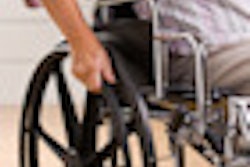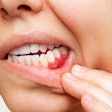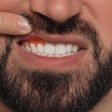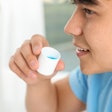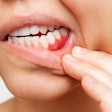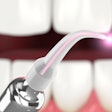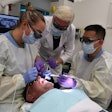Children with developmental disabilities often have higher rates of oral diseases because they have oral aversions or are unable to find dentists who are comfortable treating them, according to a new study in Pediatrics (February 25, 2013).
Children with developmental disabilities such as autism spectrum disorders, intellectual disability, cerebral palsy, and craniofacial anomalies have a greater risk of developing dental disease, according to researchers at the University of Virginia in Charlottesville. The reasons include medications high in sugar, dependence on caregivers for oral hygiene, reduced clearance of foods from the oral cavity, and impaired salivary function.
Lack of dental insurance or difficulty in finding dentists who take Medicaid also pose barriers to dental care, the study authors noted.
Medications to manage seizures may cause gingival overgrowth. Other medications, such as glycopyrrolate, trihexyphenidyl, and some attention-deficit/hyperactivity disorder medications such as amphetamine and atomoxetine can result in xerostomia, which increases the risk of dental caries, according to the authors.
Children with oral dysphagia often pocket food and fluids in their mouths, further promoting dental decay. Oral and severe motor impairments can result in hyperactive bites and gag reflexes, which can interfere with oral hygiene and also with the dentist's access to the child's mouth.
Deficiencies of vitamins A and C can result in poor healing and increased gum bleeding, while vitamin D deficiency can result in soft teeth, the study found.
Oral aversion can interfere with oral hygiene such as brushing or flossing. Behavioral problems pose another barrier to care, because parents are hesitant to bring children with disabilities to the dentist, and many dentists are uncomfortable managing them.
Children with Down syndrome are more likely to have crowding of teeth, making oral hygiene more difficult, and they are more susceptible to periodontal disease, the researchers noted. Children with cleft lip and palate may have extra teeth in or around the cleft, missing teeth, or malformed teeth, making it difficult to remove plaque and increasing the risk of dental caries.
Children with Goldenhar syndrome can have limited oral opening and/or malocclusions, making oral hygiene difficult and putting them at increased risk of both caries and gingivitis.
Children with disabilities should particularly follow the "first visit by first birthday" recommendation for dental visits, the researchers noted.
Since many children with disabilities find even routine dental procedure difficult to tolerate, many dentists use either sedation or general anesthesia to treat them. Such children often have exaggerated and unpredictable responses to sedation and conscious anesthesia, they noted. Therefore, dentists should take extra precautions with disabled children and seriously consider consulting an anesthesiologist before sedating them, they concluded.






